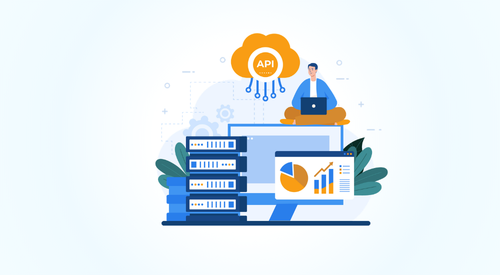

Over the last few years, Singapore has become one of the leading countries in implementing and overseeing AI. The country’s approach to governing AI is strategic as it aims to encourage innovation while promoting the need for ethics and safeguarding public’s trust. In 2023, over 3,000 small and medium-sized enterprises (SMEs) integrated AI-powered tools, applying them to tasks such as data entry and report generation. Currently, AI enables 20% of the digital tools used by SMEs. Growing importance of AI technologies for healthcare, finance and public services also sets a challenge for Singapore in regulating the use of these technologies to support progress, while avoiding negative consequences. In this blog post, we will explore some of the most relevant aspects of Singapore AI regulation, including the ethical values of artificial intelligence, governance frameworks, and provisions for infrastructure.
Stay compliant and innovate with Niveus Solutions
Overview of Singapore AI Regulations
The Singapore government has been very active in the preparation of the legal and regulatory framework for the use of AI with emphasis on risk mitigation. In this section, we will explore the current state of regulatory claims on artificial intelligence in the Singapore region.
Why AI Regulations Matter
As AI plays an important role in automating decision-making processes, the potential for ethical concerns and unintended consequences increases. From biases in algorithms to data privacy concerns, artificial intelligence regulation helps mitigate risks and safeguards societal interests. By establishing clear rules and guidelines, Singapore aims to ensure that artificial intelligence technologies are deployed responsibly, reducing the likelihood of adverse outcomes while supporting innovation.
Key Agencies Overseeing AI Regulations in Singapore
The regulation of AI in Singapore is managed by several key agencies, with the Infocomm Media Development Authority (IMDA) and the Personal Data Protection Commission (PDPC) playing leading roles. The IMDA focuses on promoting and developing the digital economy, including AI technologies, while ensuring ethical and secure deployment. The PDPC is responsible for overseeing data protection standards, ensuring that artificial intelligence applications adhere to data privacy regulations such as the Personal Data Protection Act (PDPA). Together, these agencies ensure that AI regulations align with broader national objectives and global best practices.
AI Ethics in Singapore: A Commitment to Fairness and Transparency
AI ethics is one of the essential regulatory aspects in Singapore to guide the development and use of artificial intelligence systems in a fair, transparent and accountable manner. This section will discuss how AI Ethics in Singapore influences its regulations.
AI Ethics Singapore
AI ethics refers to the principles and guidelines that govern how artificial intelligence technologies should be designed and used, with a focus on fairness, transparency, and accountability. In Singapore, AI ethics is a core element of regulatory frameworks to ensure that AI systems do not perpetuate bias or discrimination. The ethical use of artificial intelligence is crucial for maintaining public trust and ensuring that AI technologies benefit society as a whole. artificial intelligence ethics Singapore emphasizes the need for transparency in algorithmic decision-making and the importance of ensuring equitable access to AI-powered services.
The Model AI Governance Framework
Singapore has established a Model AI Governance Framework wherein companies can follow a systematic manner for the ethical use of artificial intelligence in their operations. Released by the IMDA, this framework covers tangible recommendations on how AI in organizations should be made transparent and interpretable, as well as non-discriminatory. It covers areas of interests like data management, risk containment, and human intervention. The framework also entails ideas on accountability and accurate communication to guide companies to construct reliable AI systems but adhering to Singapore artificial intelligence regulations.
Singapore’s AI Governance Framework: A Strategic Approach
To ensure the responsible development and deployment of AI, Singapore has established a comprehensive governance framework. This framework supports businesses and organizations in adhering to ethical guidelines while fostering innovation.
AI Governance Framework Singapore
The artificial intelligence governance framework adopted in Singapore is based on the principles of openness, responsibility, and justice. All of these principles are integrated into the process of developing, implementing as well as monitoring artificial intelligence systems. Transparency helps to make AI models interpretable and their results comprehensible to the end-user, whereas accountability clearly establishes who is to blame for AI’s decision-making process. This means that managers ought to work hard in order to ensure that biases are not reinforced by the artificial intelligence systems, or that inequality is not perpetuated through the AI systems in use.
The Role of AI Governance in Data Privacy
Privacy is one of the essential components of AI regulation, especially taking into consideration the large quantities of data needed to feed and run artificial intelligence systems. The laws such as Singapore’s Personal Data Protection Act (PDPA) address the appropriate usage of data in collecting, using and retaining personal data within organizations, hence enforcing data privacy amongst the artificial intelligence systems. The AI governance framework Singapore would compel companies to have high standards of data protection so that the personal data fed into the artificial intelligence are protected and individuals’ rights over their data recognized.
Regulatory Sandboxes and Innovation
In order to facilitate the balance of innovation and regulation, Singapore has started with the application of regulatory sandboxes, which permit the testing of AI solutions in a sheltered setting. These sandboxes afford the companies an opportunity to test the artificial intelligence technologies and related solutions without violating the set laws and regulations. Regulatory sandboxes also help Singapore for the responsible innovation it supports to keep the nation competitive in the advancement of artificial intelligence while policed for ethical concerns.
Building Singapore’s AI Infrastructure
The establishment of a strong and comprehensive AI framework is essential in achieving the development and enhancement of artificial intelligence systems. Singapore especially has endeavored in the course of creating a conducive environment for AI innovation while at the same time ensuring proper usage.
National AI Strategy and Key Initiatives
Singapore’s National AI Strategy outlines a roadmap to transform the country into a global AI hub by 2030. Key initiatives include investment in artificial intelligence research and development, fostering AI talent, and building strong partnerships between the public and private sectors. The strategy also emphasizes the development of artificial intelligence solutions in areas such as healthcare, smart cities, and urban mobility. By strengthening the Singapore AI infrastructure, the country aims to position itself as a leader in artificial intelligence technologies while ensuring that AI deployment aligns with regulatory standards.
Challenges in Singapore AI Infrastructure Development
Despite significant progress, building AI infrastructure comes with challenges, including technical limitations, skill shortages, and the need for continuous regulatory updates. As artificial intelligence technologies evolve rapidly, Singapore’s regulators must keep pace to address emerging risks such as algorithmic bias and AI security threats. Ensuring that Singapore artificial intelligence infrastructure is resilient and adaptable will be crucial for sustaining long-term growth in AI development.
The Future of AI Regulations in Singapore
As AI technologies continue to evolve, Singapore’s regulatory framework will need to adapt to new challenges and opportunities. This section will explore the future of artificial intelligence regulations in the country.
Strengthening AI Governance for Global Competitiveness
As a global leader in AI, Singapore is well-positioned to set international standards for AI governance. The artificial intelligence governance framework in Singapore is already aligned with global best practices, but the country will continue to refine its approach to stay competitive. This includes working closely with international partners to ensure that Singapore remains at the forefront of artificial intelligence regulation and governance.
Encouraging Responsible AI Innovation
Ultimately, AI regulations in Singapore are designed to support responsible innovation. By fostering collaboration between the government, industry, and academia, Singapore aims to create an environment where artificial intelligence technologies can thrive while maintaining high ethical standards. Continued investment in AI research, education, and governance will ensure that Singapore remains a leader in the global artificial intelligence landscape.
Conclusion: Navigating AI Regulations for a Sustainable Future
Singapore AI regulations are anchored on the principles of AI ethics, governance structures and favorable Chinese AI environment. To this end, Singapore works to incorporate essentials of transparency, accountability and fairness in the utilization of AI, to avoid some of the adverse factors that may arise, including bias, discrimination, and data privacy violations. The implementation of the framework of artificial intelligence governance in Singapore offers a road map for companies to leverage to address the dynamics appropriately and practically while ensuring that they align with a set of distinctly stated ethical benchmarks. This proactive approach will keep on developing to make sure Singapore stays relevant in handling more future artificial intelligence issues and possibilities.
Through its investments in AI research, development, and regulatory technology triage or sandboxes, the country is laying the groundwork and aptly positioning itself for the next wave of AI solutions that will spur economic and societal growth. In the case of Singapore artificial intelligence regulations, the government will therefore likely issue new rules of engagement that are responsive to these concerns, and capable of promoting the responsible deployment of artificial intelligence as a sustainable solution.
Finally, the regulation frameworks in Singapore do not exist in isolation just to meet compliance but with an aim of developing artificial intelligence technologies that will foster a better society in Singapore and other parts of the world. This way, by keeping a product commitment to ethical AI practices and governanceECH and adopting flexible, decentralized regulation, Singapore is also setting a positive example for the rest of the world, proving that responsible development can go hand in hand with innovation. As artificial intelligence continues to grow, Singapore’s regulatory approach will ensure such technologies are for the betterment of society and create sustainable, inclusive and ethical AI systems for the people of the future.e the value of their cloud journey and stay ahead in the competitive landscape.











